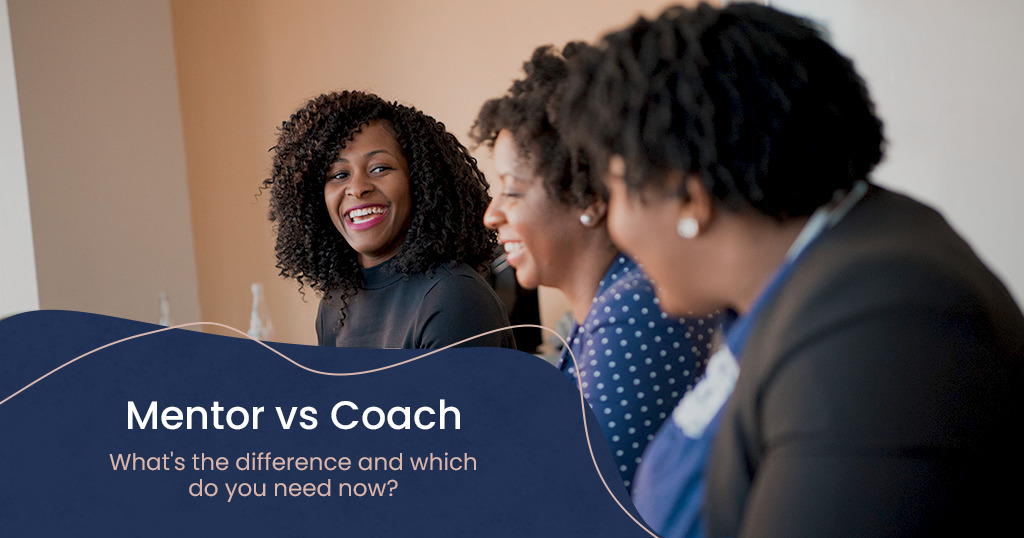Mentoring and coaching are two different forms of guidance and support. The main difference is the expectations of a coach vs the expectations of a mentor. These expectations are reflective of the variation between coaches and mentors when it comes to cost, experience, and training, and the methodologies and protocols applied.
Let’s start with the similarities between coaching and mentoring first. There are a lot of similarities which creates a large grey area between these two practices or professions. The primary similarity is that both the coach and mentor use their time, presence, and expertise to help an individual (the client or mentee) grow and achieve a desired outcome. Being effective in either role, coach or mentor, requires asking questions, active listening, and a level of self-awareness to be able to have a level of presence and focus on serving the needs of the client, or mentee. Both coaches and mentors need to be professional in respecting boundaries and maintaining confidentiality.
So what are some of the key differences between a mentor and a coach?
Mentoring generally involves a more experienced person (the mentor) providing guidance, advice, and support to a less experienced person in a particular area (the mentee) based on their own experience and expertise. Mentors may offer career guidance and advice, help with personal development, and share knowledge and skills. The mentor is not necessarily expected to have the answers or framework to get a mentee to a particular outcome. Rather they can act as a sounding board, using their own experiences to ask questions and offer guidance and resources (e.g. introductions) to the best of their ability. Mentoring has traditionally been more informal and it is generally voluntary rather with the mentor expecting payment for their services.
Coaching, on the other hand, tends to focus on specific skills or goals and is often more structured and goal-oriented than mentoring. Coaches are usually skilled in a particular area and have frameworks, protocols, and/or training that they apply to help a client achieve particular goals. The coach is an expert in a particular area and the client engages the coach to learn the specifics that enable them to become more of an expert in the relevant area. Coaching is usually a paid service as it is the coaches profession.
When should I look for a mentor and when should I look for a coach?
Deciding whether to seek a mentor or a coach depends on your specific needs and goals. Using both coaching and mentorship throughout your career can be very beneficial as they often complement each other. For example, you may seek to always have relevant mentors you can meet with and when there is a specific area that you want to upskill in, you engage a coach.
You may want to look for a mentor if:
- You are looking for guidance and advice on your career development, or want to learn from someone with more experience in your field.
- You are interested in personal development and seeking someone to help you grow in areas such as leadership, decision-making, or communication.
- You want to establish longer-term relationships with people who can provide ongoing support and guidance.
You may want to look for a coach if:
- You have a specific goal you want to achieve and recognize that you need expert help to achieve it.
- You want to receive structured feedback and guidance on your performance in a particular area.
- You are looking for a more focused and short-term relationship with someone who can help you achieve your specific goals.
Where does OneUpOneDown fit into this?
At OneUpOneDown we focus on mentorship. We make matches women mentee with women mentors who are a couple of steps ahead in specific areas of learning and development. This is called near-peer mentorship. Mentors are not expected to be experts in particular areas, rather they are there to offer new perspectives, experiences, and guidance to mentees. We have designed our service so that women can always access relevant mentors. Each match lasts three months with four meetings, to create a focus and orientation for achieving goals within the relationships.
Find out more about OneUpOneDown here.
Follow OneUpOneDown on Facebook, LinkedIn, Twitter and Instagram to stay tuned with the latest news.
